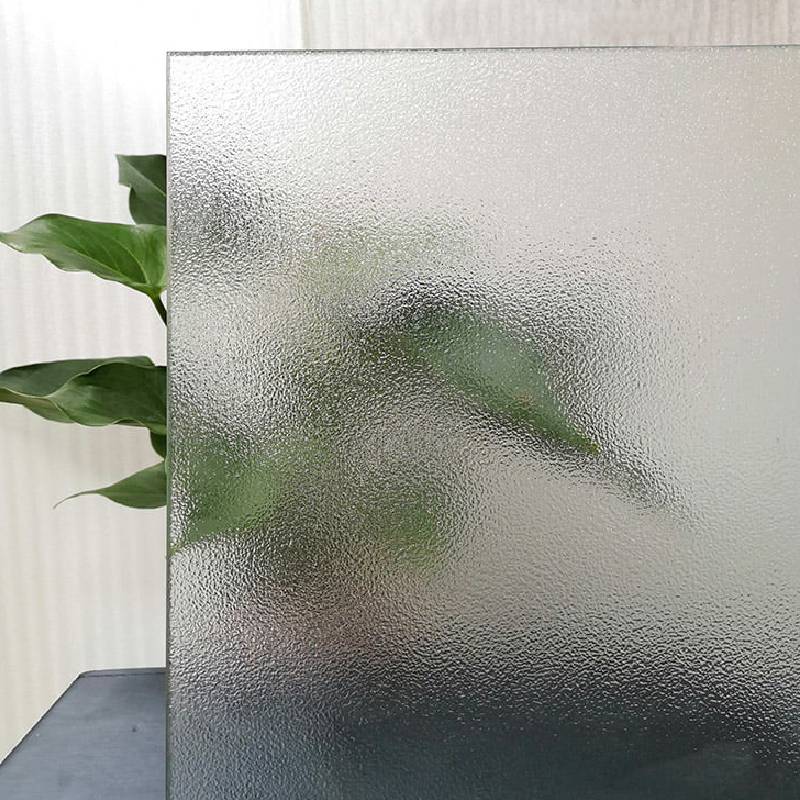
Typical Nashiji Obscure Pattern Glass texture (3mm/4mm)
1. Industry Overview: The Rise of 3mm 4mm Nashiji obscure pattern glass
In the era of modern architecture and advanced industrial processing, the demand for obscured yet light-permeable glass solutions has significantly increased. Among these,
the 3mm 4mm Nashiji obscure pattern glass stands out due to its excellent balance of privacy,
aesthetics, and durability. According to the MarketsandMarkets Glass Report 2023, the global patterned and obscure glass market
is projected to reach USD 8.2 billion by 2027, with Nashiji-patterned glass forming a major share due to its utility in commercial, residential, and industrial sectors.
- Applications: Office partitions, shower rooms, facades, sanitary ware, laboratory windows.
- Growth Drivers: Trend towards decorative yet functional design; increased privacy regulations in commercial architecture.
- Regional Demand: Especially rising in Asia-Pacific due to rapid urbanization; Europe favors it for eco-construction projects.
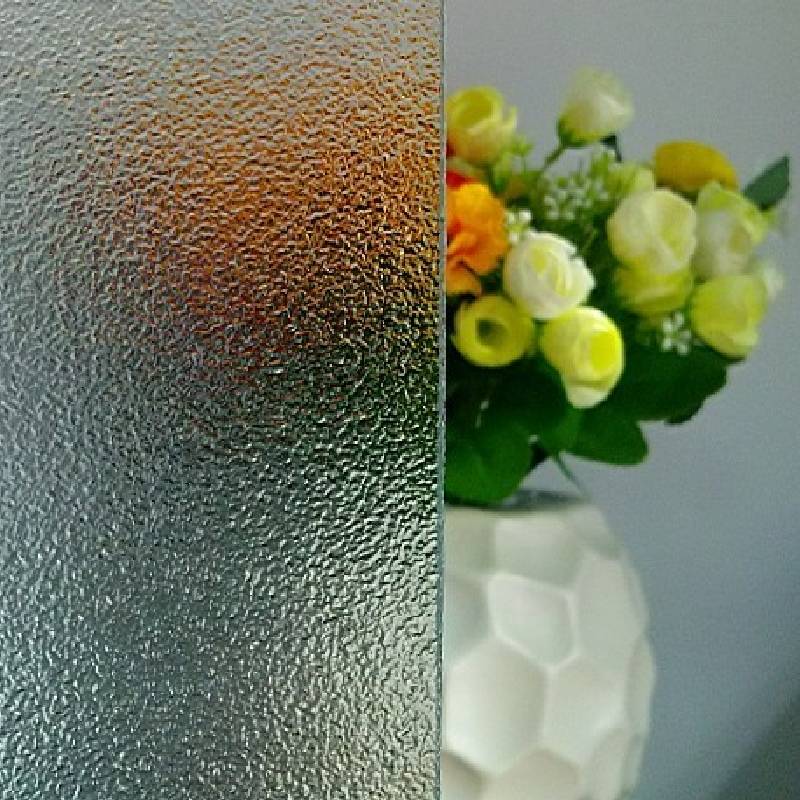
Application example in industrial settings (Nashiji Obscure Pattern Glass 4mm)
2. Technical Specifications of 3mm 4mm Nashiji obscure pattern glass
Product Technical Parameters Overview
| Item |
3mm Nashiji |
4mm Nashiji |
Standard |
Light Transmission |
Surface Pattern |
Max Size |
Color Options |
| Thickness |
3mm ±0.2mm |
4mm ±0.2mm |
ISO 12543 / ANSI Z97.1 / EN 572-5 |
78%~85% |
Nashiji (Obscure/Wavy/Sandblasted Feel) |
1830×2440mm |
Clear, Bronze, Grey, Blue, Green |
| Density |
2.47 g/cm³ |
2.47 g/cm³ |
74%~82% |
2140×3300mm |
| UV Resistance |
>99% |
GB/T 17841-2019 |
High (Tested up to 1200h exposure) |
| Acid / Alkali Resistance |
Level A |
ISO 695 |
Excellent chemical resistance |
Light Transmission & Mechanical Strength Comparison (3mm vs 4mm)
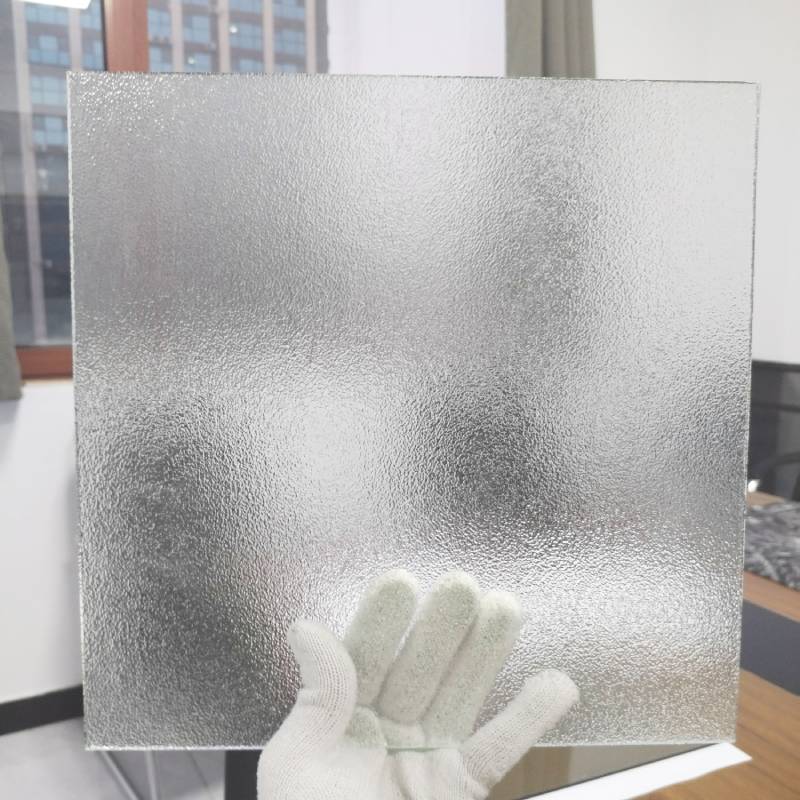
Nashiji Obscure Pattern Glass in architectural design
3. Manufacturing Process of 3mm 4mm Nashiji obscure pattern glass
Nashiji Obscure Pattern Glass Manufacturing Flow
Raw Silica Sand + Flux
→
Batch Melting
(>1600℃, soda-lime-silicate formation)
→
Pattern Rolling
(Casting on Nashiji Rollers)
→
Annealing
(Stress relief in lehr)
→
Cut-to-Size / Edgework
→
Inspection & Testing
(ISO/ANSI standard)
→
Packing & Logistics
Each stage is monitored by automated sensors for thickness, pattern depth, and surface defects.
Testing covers glass optical, mechanical, and chemical stability in accordance with ISO 12543, ANSI Z97.1, and EN 572-5.
Key Features from a Technical Perspective
- Material: High-purity soda-lime glass, with patterned surface etched via precision rolling for Nashiji obscure effect.
- Pattern Consistency: Modern CNC-controlled rollers ensure raw Nashiji texture depth between 0.18-0.35mm, securing consistent diffusion of light and privacy.
- Quality Control: Laser and camera inspection for surface wave, thickness, bubble, and pattern distribution.
- Certification: Regular audits to ISO 12543, ANSI Z97.1, EN 572-5.
- Resistance: Nashiji glass achieves superior weathering resistance, with testing showing color and structure stability after 1,500h accelerated weather exposure.
- Service Life: 15~30 years in typical outdoor/indoor architectural use, as verified by third party SGS testing.
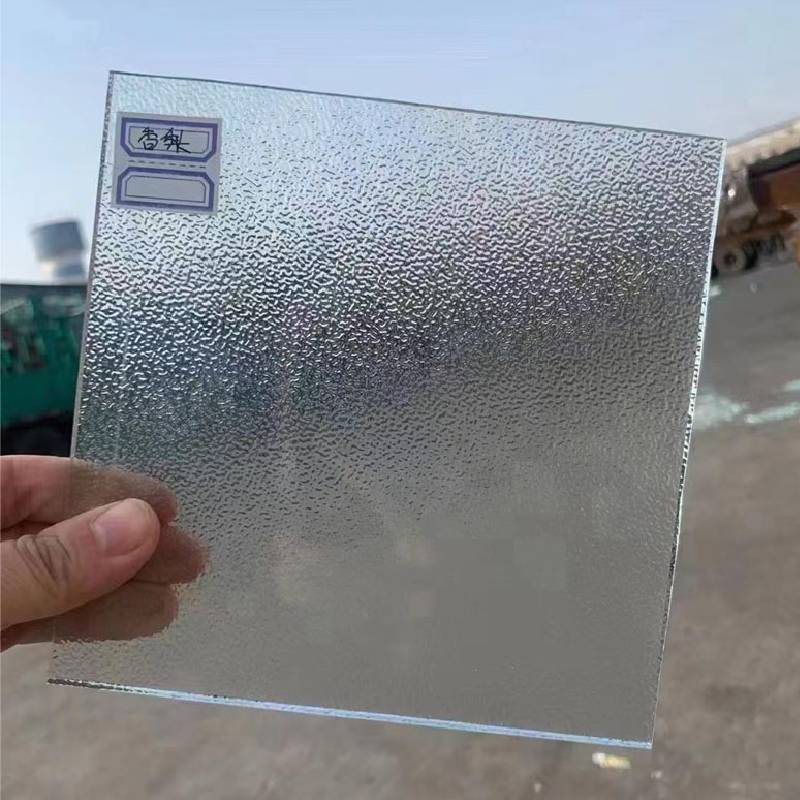
Expert installation and edge processing for Nashiji patterned glass
4. Benchmarking: Nashiji Glass vs. Standard Patterned Glass
Performance Comparison Table
|
3mm Nashiji |
4mm Nashiji |
Common Patterned Glass (3mm/4mm) |
| Pattern Uniformity |
High (0.18mm depth) |
High (0.35mm depth) |
Moderate (0.12~0.24mm) |
| Privacy Rating |
Level 3 (High diffused) |
Level 3 |
Level 1~2 |
| Light Transmission |
84% |
78% |
80% (avg.) |
| Thermal Expansion |
9.0×10-6/K |
9.0×10-6/K |
9.1×10-6/K |
| Acid/Chemical Resistance |
Excellent (ISO 695 Class A) |
Excellent |
Good |
| Service Life |
≥ 28 years |
≥ 30 years |
~20 years |
Share of 3mm 4mm Nashiji obscure pattern glass Usage by Industry (2023*)
5. Custom Solutions & Typical Application Scenarios
Customization is a core competence of modern manufacturers for 3mm 4mm Nashiji obscure pattern glass.
Solutions can be tailored in terms of dimension (cut-to-size, oversized), pattern density, tint, colored films, and even in-laminate assembly for safety.
Edgework (arrissed, polished, beveled) and toughening/lamination options further empower project requirements.
-
Project Type: Residential (windows, bathroom partitions, glass doors), Commercial Buildings (offices, hotels, malls), Industrial Glazing (factory partitions, laboratory view panels), Water Treatment Facilities (chemical-resistant panels).
-
Case Example 1: Shanghai Pudong Hospital (2023) used 5,200m² of 4mm Nashiji obscure glass in lab partitions, ensuring high light throughput and chemical resistance.
-
Case Example 2: Zhejiang Petrochemical Plant (2022) - 3mm Nashiji employed for control room windowing, offering privacy + 25% less UV transmittance vs. standard patterned glass.
-
Feedback Snapshot:
‘Excellent service life, easy to clean, and fulfills our green building rating.’
– Ark Design Studio, 2024 Client Survey
-
Sustainability: Multiple LEED and BREEAM projects have cited Nashiji pattern glass for its daylighting and eco-friendly characteristics.
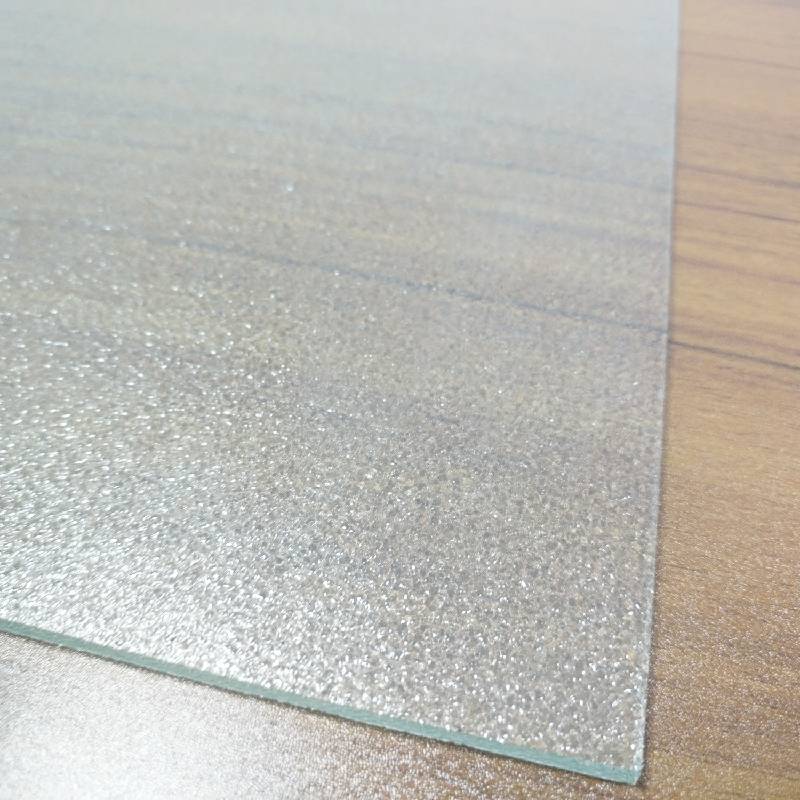
Application case: Nashiji patterned glass in water engineering
Durability Testing: Weather Resistance (Accelerated Hours Until Surface Degradation)
6. Industry Certifications, Partners, and Service Commitment
-
Industry Certifications: 3mm 4mm Nashiji obscure pattern glass is certified to ISO 12543 (safety glass in building),
EN 572-5 (patterned glass), and ANSI Z97.1 (US safety glass).
-
Cooperation Brands: Partners include Saint-Gobain, AGC Glass,
CSG Holding, and several leading construction groups in Asia, Europe.
-
Years in Service: Many suppliers, including SHZRGLASS, have >20 years experience in industrial and architectural glass production.
-
Warranties: Standard 10-year product warranty with optional 3-year on-site technical support.
-
Testing Reports: Certified by SGS, TÜV,
full compliance to ISO and ANSI/ASTM requirements.
-
After-sales: 24/7 multilingual support, fast delivery cycles (7-14 working days for standard orders).
7. FAQs on 3mm 4mm Nashiji obscure pattern glass – Expert Answers
- 1. What material is used for 3mm 4mm Nashiji obscure pattern glass?
- High purity soda-lime glass forms the base, ensuring optical clarity and mechanical strength. The Nashiji pattern is imparted during hot rolling using precision steel pattern rollers.
- 2. What are the standard thicknesses and size ranges available?
- 3mm and 4mm are the standard thicknesses, available in sheet sizes up to 2140×3300mm. Custom size cutting is possible while maintaining pattern integrity.
- 3. Are there international standards governing Nashiji pattern glass?
- Yes. Products comply with ISO 12543, EN 572-5, and ANSI Z97.1 for pattern uniformity, impact/safety, and optical properties.
- 4. What is the achievable light transmission and privacy level for Nashiji obscure pattern glass?
- Light transmission ranges from 78% (4mm) to 85% (3mm), with privacy levels 'High' (Level 3 diffusion), making it ideal for offices, bathrooms, and laboratory partitions.
- 5. How is the Nashiji pattern formed and tested?
- The Nashiji pattern is rolled on using CNC-engraved steel rollers at high temperature; pattern depth is measured via laser sensors, and surface uniformity is assessed under EN 572-5 / ISO 12543 protocols.
- 6. What edgework and finishing options are available?
- Arrissed, C-edge, polished, and beveled edge treatments are available. Tempering/laminating can be applied for enhanced safety or impact resistance.
- 7. What installation and cleaning standards should be followed?
- Follow ASTM C1048 or EN 1096 installation guidelines: use suitable gaskets, avoid cement/mortar contact, and clean with non-abrasive solvents only.
8. Delivery Cycle, Quality Assurance & Technical Services
-
Production Lead Time: For standard 3mm 4mm Nashiji obscure pattern glass, typical production+shipping is 7~14 working days. Custom color and jumbo-size variants may require 18~25 days.
-
Packing: Export-grade plywood crates with humidity protection and anti-abrasion layers.
-
Quality Guarantee: >99.7% pass rate, traceable batch certification with every delivery.
-
On-site Technical Support: For project clients, complete support from engineering team is available (design-fit, on-site measuring, post-install check).
-
Maintenance Guide: Detailed care/instruction manuals provided; compliance with RoHS for environmental safety.
References and Further Reading:
 Afrikaans
Afrikaans  Albanian
Albanian  Amharic
Amharic  Arabic
Arabic  Armenian
Armenian  Azerbaijani
Azerbaijani  Basque
Basque  Belarusian
Belarusian  Bengali
Bengali  Bosnian
Bosnian  Bulgarian
Bulgarian  Catalan
Catalan  Cebuano
Cebuano  Corsican
Corsican  Croatian
Croatian  Czech
Czech  Danish
Danish  Dutch
Dutch  English
English  Esperanto
Esperanto  Estonian
Estonian  Finnish
Finnish  French
French  Frisian
Frisian  Galician
Galician  Georgian
Georgian  German
German  Greek
Greek  Gujarati
Gujarati  Haitian Creole
Haitian Creole  hausa
hausa  hawaiian
hawaiian  Hebrew
Hebrew  Hindi
Hindi  Miao
Miao  Hungarian
Hungarian  Icelandic
Icelandic  igbo
igbo  Indonesian
Indonesian  irish
irish  Italian
Italian  Japanese
Japanese  Javanese
Javanese  Kannada
Kannada  kazakh
kazakh  Khmer
Khmer  Rwandese
Rwandese  Korean
Korean  Kurdish
Kurdish  Kyrgyz
Kyrgyz  Lao
Lao  Latin
Latin  Latvian
Latvian  Lithuanian
Lithuanian  Luxembourgish
Luxembourgish  Macedonian
Macedonian  Malgashi
Malgashi  Malay
Malay  Malayalam
Malayalam  Maltese
Maltese  Maori
Maori  Marathi
Marathi  Mongolian
Mongolian  Myanmar
Myanmar  Nepali
Nepali  Norwegian
Norwegian  Norwegian
Norwegian  Occitan
Occitan  Pashto
Pashto  Persian
Persian  Polish
Polish  Portuguese
Portuguese  Punjabi
Punjabi  Romanian
Romanian  Russian
Russian  Samoan
Samoan  Scottish Gaelic
Scottish Gaelic  Serbian
Serbian  Sesotho
Sesotho  Shona
Shona  Sindhi
Sindhi  Sinhala
Sinhala  Slovak
Slovak  Slovenian
Slovenian  Somali
Somali  Spanish
Spanish  Sundanese
Sundanese  Swahili
Swahili  Swedish
Swedish  Tagalog
Tagalog  Tajik
Tajik  Tamil
Tamil  Tatar
Tatar  Telugu
Telugu  Thai
Thai  Turkish
Turkish  Turkmen
Turkmen  Ukrainian
Ukrainian  Urdu
Urdu  Uighur
Uighur  Uzbek
Uzbek  Vietnamese
Vietnamese  Welsh
Welsh  Bantu
Bantu  Yiddish
Yiddish  Yoruba
Yoruba  Zulu
Zulu 





